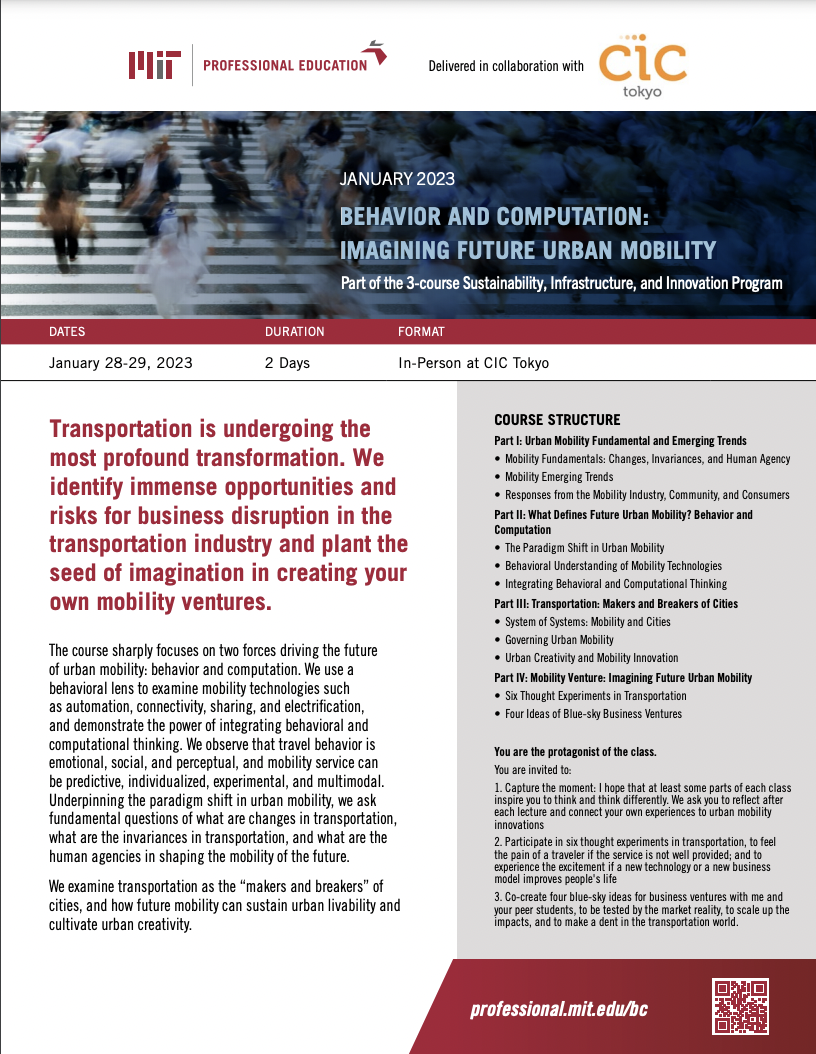The course is a part of the 3-course Sustainability, Infrastructure, and Innovation Program. The program is delivered in collaboration with CIC Tokyo, Japan.
The course sharply focuses on two forces driving the future of urban mobility: behavior and computation. We use a behavioral lens to examine mobility technologies such as automation, connectivity, sharing, and electrification, and demonstrate the power of integrating behavioral and computational thinking. We observe that travel behavior is emotional, social, and perceptual, and mobility service can be predictive, individualized, experimental, and multimodal.
Underpinning the paradigm shift in urban mobility, we ask fundamental questions of what are the changes in transportation, what are the invariances in transportation, and what are the human agencies in shaping the mobility of the future. We examine transportation as the “makers and breakers” of cities, and how future mobility can sustain urban livability and cultivate urban creativity. We identify immense opportunities and risks for business disruption in the transportation industry and plant the seed of imagination in creating your own mobility ventures.
For information about this course in Japanese, please visit here.
Please email project.tokyo@cic.com if you have any questions.



